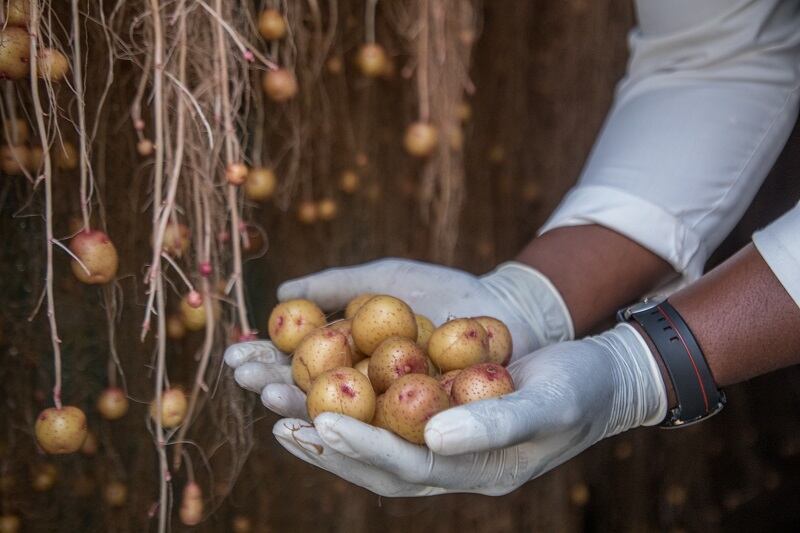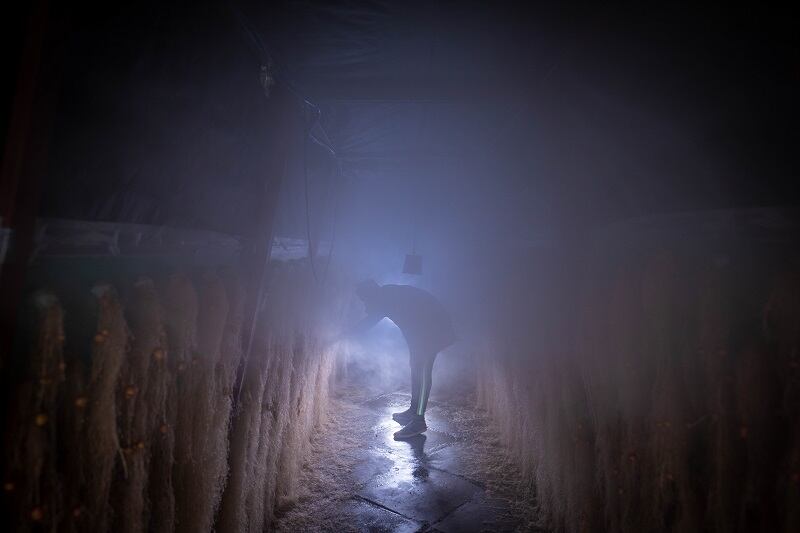Airponix technology uses a nutrient-rich 'fog' instead of soil to grow crops. The UK company says the system enables the growth of nutritious food crops with 95% less water. The Cambridge-based start-up therefore claims to be an example of the radical and disruptive new technologies that are critical to sustainably enhancing food and nutrition security.
It was one of 12 finalists of the second edition of the UAE’s global FoodTech Challenge (we spoke with two winners Aquagrain and Sustainable Planet) which seeks to find the next wave of technology innovations on the cusp of transforming traditional agriculture practices, efficiently and sustainably.
The company believes it can grow all of the required potatoes to meet the UAE demand with just 175 hectares. The system, however, can be deployed anywhere in the world. It claims that Scotland and Kenya, growers are achieving 2.5 - fivefold increases in production per footprint, greater than 50% water savings, lower cost comparable energy and better progeny compared to their aeroponic systems.
Unlike aeroponic systems that deploy sprays or mists onto roots like rain, Airponix claims to use a much smaller droplet size, making it easier for plants to absorb the nutrients as the fog penetrates deep into all the root hairs. This further avoids roots becoming “long, drooping, and stuck together”, explained the company’s CEO Michael Ruggier. He added the system uses less water and avoids using an expensive pumping system sometimes needed in Hydroponics
“Our USP is creating a droplet which is 1/10th the size of human hair, and it remains suspended in the air, which is really unique,” Ruggier told FoodNavigator. “This means that we can completely redesign the indoor vertical farming market because we have much larger structures. Moreover, we don’t have trays one above the other, therefore our system can allow natural light, instead of having to use LEDs. So, with this, we can dramatically reduce costs.”

The system is like a dry cloud that mimics nature, he explained, like an orchid growing in air, absorbing light, oxygen, humidity and nutrients from its surroundings. “With climate change, with a lack of water, with the growing population, we needed radical, disruptive technology to solve the challenges we face,” the CEO added. “That's why we started Airponix. I worked with my co-founder, who's now retired, John Brewer, who invented Airponix about 40 years ago.
“We have grown a wide range of crops, but we focused on the high value crops such as seed potatoes, where you can pick them all season long for maybe two, two and a half months. We get better yields from those – about 50 to 60 times higher.
"I think the potential for our technology is huge and really helps to feed the growing population and sustainably use very little energy compared to any other system, as well as no soil, and a fraction of the inputs with much greater yields. We only use about 5% of the water as opposed to conventional methods.”
Can this be a practical solution at scale, however? “The potential for our technology to feed a growing population sustainable and with very little energy is huge, with a fraction of the inputs and much greater yields as compared to conventional systems,” Ruggier said.
Airponix plans to lease small units to potential customers and is currently trialing the technology in Kenya to provide seed potatoes, and has an agreement with major potato grower in the UK.
“Our technology will be the ultimate fog generation system in low power, high reliability, guaranteed droplet size and very, very low energy consumption," added Ruggier
“We have an ozone injection system that we've got of exclusivity on, so that sterilizes everything, so we don’t spray our plants with harmful chemicals. We're almost close to net zero. There is minimum to no use of fossil fuels. Our water usage is very low.”


